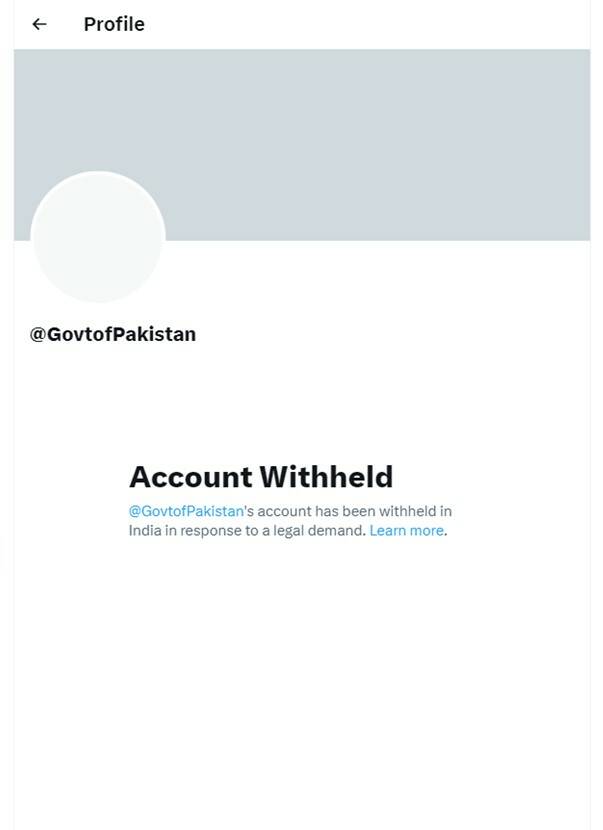This article is more than 1 year old
Twitter blocks Pakistan government account, boosts state-run media from Russia and China
Block complies with Indian policy, but boost may violate avian network's state-sponsored media rules
Twitter has followed Indian government policy and geo-blocked an account from neighboring Pakistan, while seemingly violating its own policies by elevating the accounts of Chinese state-controlled media.
Viewing the account via an Indian IP address produced a notice that the account was withheld in India in response to a legal demand. According to the micro-blogging service that could include a court order.
Indian media outlet Medianama pointed out that the move could potentially be an order issued by the Indian government using Section 69A of the IT Act 2000, rather than a court order. If so, the reasons for blocking the account would be confidential.
Within India, the account can be seen using a VPN.
While blocking an official government account by another nation is rare, this is reportedly the third time India has blocked @GovtofPakistan.
The account was reportedly blocked in both July and October 2022.
- Indian state turns off internet for 27 million, for four days, to stymie one man
- Prime suspect: Amazon India apologises for offensive scenes in political thriller
- Twitter sues Indian government over content takedown orders
- India floats idea of dedicated tribunal to handle online offences
While the reason for the block is unknown, one hypothesis is that it is related to the hunt for Sikh separatist Amritpal Singh, who is currently on the run. In March, India shut down a wide swath of mobile internet services in the Pakistan-bordering state of Punjab as they searched for the 30-year-old man. Allegations have emerged that Singh has been funded by Pakistan.
India has already supressed other voices related to the situation in Punjab. The Software Freedom Law Center (SFLC) has counted blocks of 122 accounts belonging to journalists, poets and politicians following unrest in the state.
"There's been a lot of this unfortunately," policy director of the Internet Freedom Foundation (IFF) Prateek Waghre told The Register via phone. Waghre said the applications of the criteria in section 69A seem to be widening.
"We are seeing broadening of an already broad set of criteria," said Waghre.
In its pre-Musk ownership days, Twitter did challenge takedown orders from India's government.
"Twitter contended they could withhold tweets, not an entire account," said Waghre. That litigation, however, is still ongoing, and thus Twitter must comply with any orders until it is determined otherwise.
Waghre also pointed out that in India, such compliance liability falls on individual employees. Compliance with government orders is therefore an employee safety issue.
Twitter India, however, has many fewer employees since a round of layoffs at the start of 2023.
"There are questions to how things have been affected. Maybe there is not enough capacity to process these requests," explained Waghre.
China and Russia boosted
In other Twitter-related government policy news, the social media platform appears to have changed course on restricting the influence of state media, and thus violated its own policies.
Twitter policy, or what passes as policy in these crazy times, dictates that it will not amplify or recommend accounts labelled as state-affiliated media. However, such entities have been appearing regularly on the social media site's "For You" tab, which uses an algorithm to recommend tweets to users.
Twitter seems to be violating its own policy by recommending posts from Chinese state media accounts. I’ve seen a few of these recently on my “For you” tab from state afflicted accounts that I do not follow. pic.twitter.com/Nb0AGxSzad
— Wenhao (@ThisIsWenhao) March 28, 2023
Furthermore, such accounts once were not included in search results if the user did not follow the account. However, users have noted their sudden inclusion. The state-sponsored media now popping up unexpectedly are based in Russia and China.
The Reg would normally have contacted Twitter to better understand any policy changes. But the novelty of receiving a poop emoji in response to media inquiries – the sole response to inquiries from Twitter's PR office – has well and truly worn off. ®

